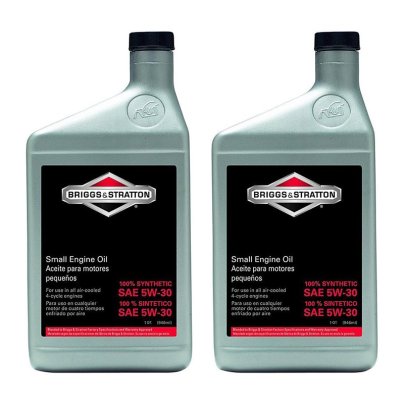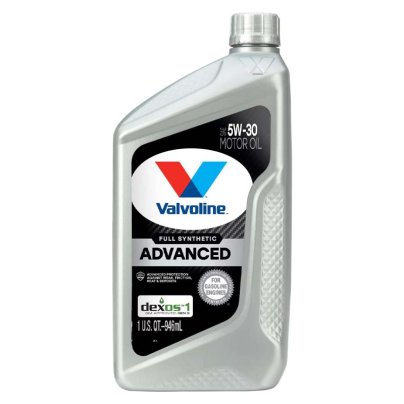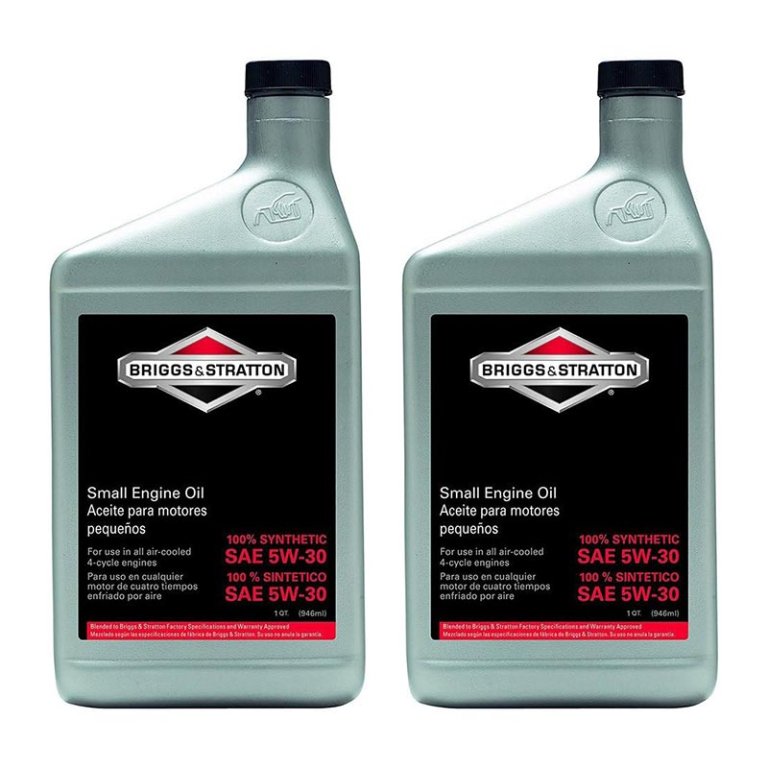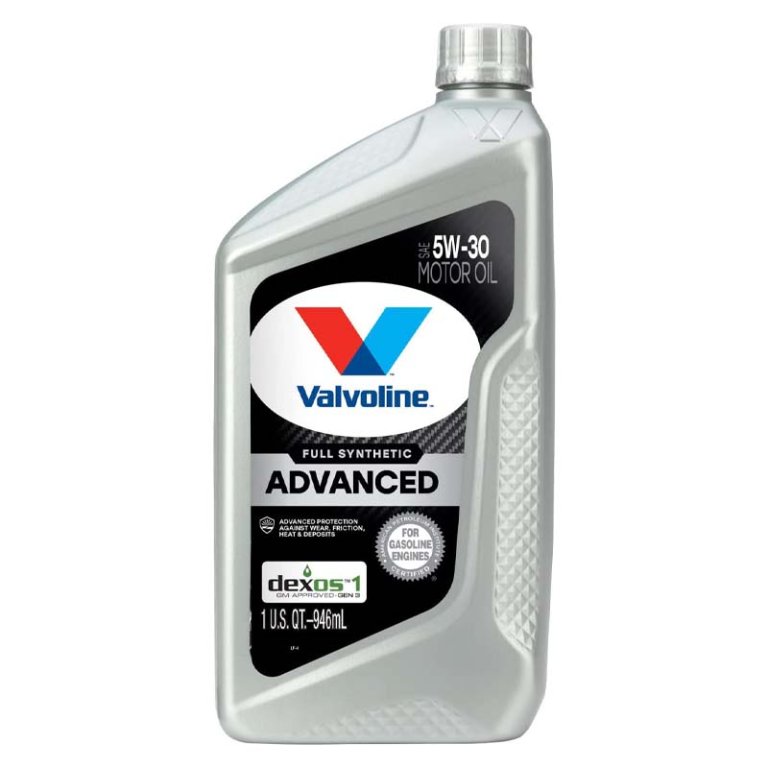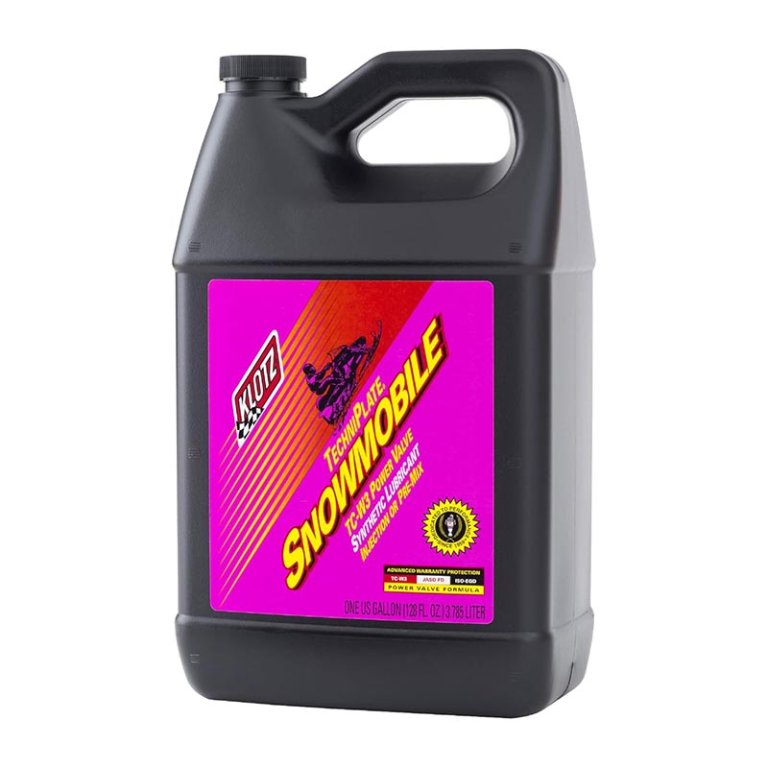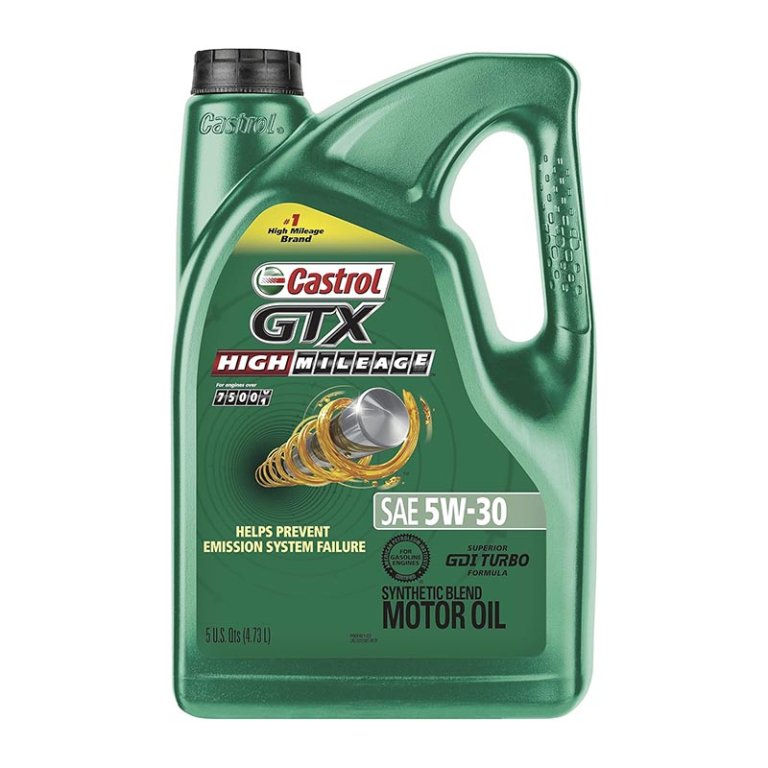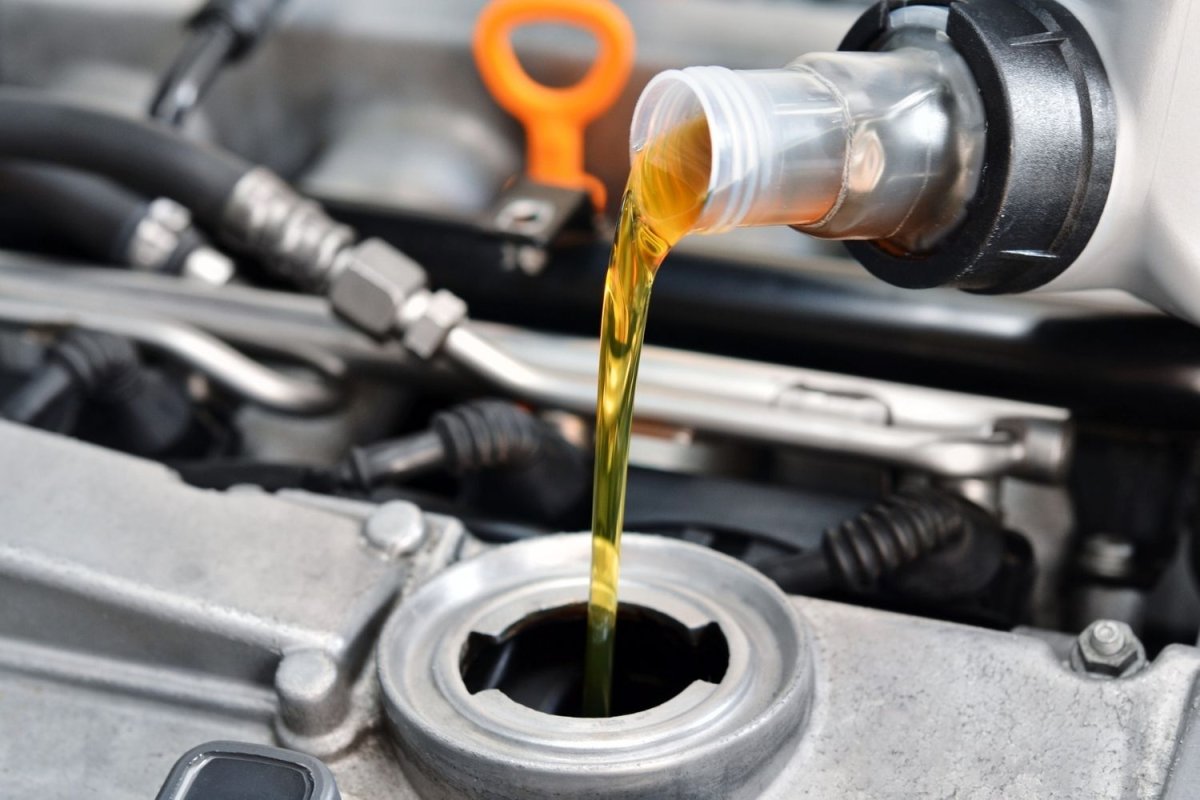
We may earn revenue from the products available on this page and participate in affiliate programs. Learn More ›
High-quality oil for snow blowers helps keep your gas snow blower in peak condition, making starting and running it easier and smoother so you can clear wet winter weather quickly. However, knowing which oil type is best for your machine can be a challenge, so we researched dozens of popular snow blower lubricant options and reached out to an expert for their insights on choosing the right one.
Based on our efforts, we learned that the best-performing oil should flow easily through a snow blower engine, even in the coldest temperatures, without leaving deposits and grime. That’s why we chose the Pennzoil Platinum Full Synthetic 5W-30 Motor Oil as our top pick: This synthetic engine oil offers excellent performance in extreme cold and washes away dirt as it flows through, helping extend the life of snow-blowing tools season after season.
Read on to learn more about the features that make a motor or car oil appropriate for a snow blower, and see the rest of the best oils for snow blowers on the market today.
- BEST OVERALL: Pennzoil Platinum Full Synthetic 5W-30 Motor Oil
↓ Jump to Review - RUNNER-UP: Briggs & Stratton 5W-30 Synthetic Engine Oil
↓ Jump to Review - BEST BANG FOR THE BUCK: Valvoline Advanced Full Synthetic SAE 5W-30 Motor Oil
↓ Jump to Review - BEST FOR SMALL ENGINES: Briggs & Stratton 5W-30 Low-Temp Small Engine Oil
↓ Jump to Review - BEST FOR 2-CYCLE ENGINES: Klotz TechniPlate 2-Stroke Snowmobile Oil
↓ Jump to Review - MOST VERSATILE: Castrol GTX High-Mileage 5W-30 Motor Oil
↓ Jump to Review
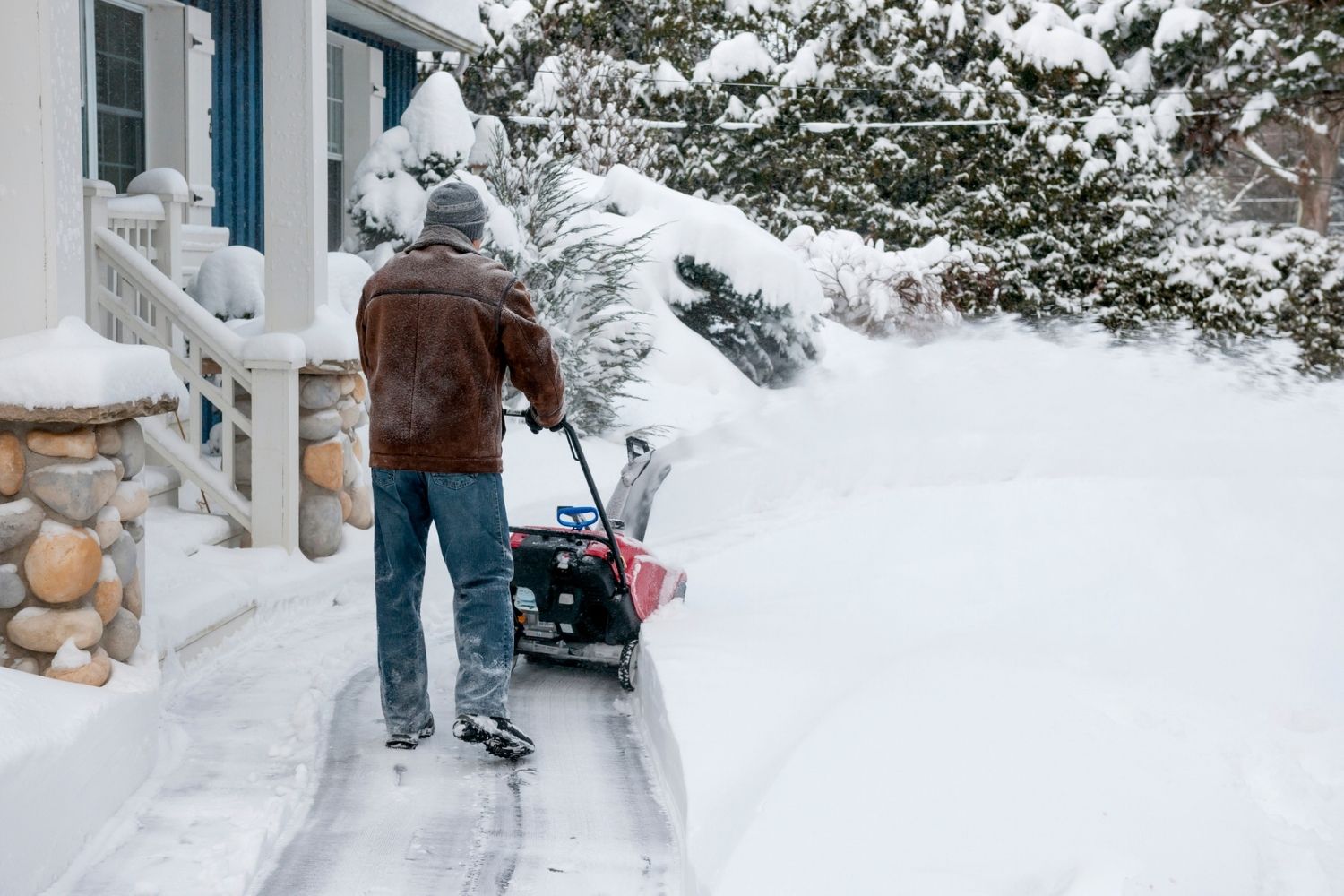
Best Oils for Snow Blowers Comparison Chart
| Product Name | Volume | Configuration | Type |
| Pennzoil Platinum Full Synthetic 5W-30 Motor Oil | 1 quart | 5W-30 | Synthetic |
| Briggs & Stratton 5W-30 Synthetic Engine Oil | 1 quart | 5W-30 | Synthetic |
| Valvoline Advanced Full Synthetic SAE 5W-30 Motor Oil | 1 quart | 5W-30 | Synthetic |
| Briggs & Stratton 5W-30 Low-Temp Small Engine Oil | 1 quart | 5W-30 | Synthetic |
| Klotz TechniPlate 2-Stroke Snowmobile Oil | 4 quarts | TC-W3 | Synthetic |
| Castrol GTX High-Mileage 5W-30 Motor Oil | 5 quarts | 5W-30 | Synthetic |
Our Top Picks
Our top picks feature oils specially formulated for cold weather, and many also have additives that help keep snow blower engines free of harmful dirt and deposits. Any of the following recommended products will help keep your snow blower running smoothly.
Best Overall
Pennzoil Platinum Full Synthetic 5W-30 Motor Oil
What We Like
- Suitable for snow blowers and car engines
- 5-quart size has 2 handles for controlled pouring
- Protects for long periods of time
What We Don’t Like
- Oil losses can occur with intense friction
Specs
- Volume: 1 quart (other sizes available)
- Configuration: 5W-30
- Type: Synthetic
Seasonal machines, such as snow blowers, often sit idle for months before they are needed, which allows time for impurities and gunk to build up. However, Pennzoil’s Platinum motor oil washes dirt and deposits out of the engine as it passes through, helping to extend the life of the machine while ensuring it starts when the next snowfall arrives. As a fully synthetic clear 5W-30 oil made from natural gas, this pick can keep your snow blower engine up to 45 percent cleaner than standard oils.
Pennzoil Platinum comes in 1-quart, 5-quart, and 55-gallon bottles, and buying a larger volume might be smart since it also works in car engines. Another thing we really like about this product is the 5-quart bottle has handles on both the top and the side, making it much easier to pour without making a mess.
Get the Pennzoil oil for snow blowers at Lowe’s, Ace Hardware, The Home Depot, Walmart, or Blain’s Farm & Fleet.
Runner-up
Briggs & Stratton Synthetic Small Engine Motor Oil
What We Like
- Helps maintain a clean engine
- Suitable for use in other garden equipment
- Enables a smoother snow blower start
What We Don’t Like
- More expensive than similar options
Specs
- Volume: 1 quart
- Configuration: 5W-30
- Type: Synthetic
This Briggs & Stratton 5W-30 small engine oil is well suited to snow blowers—its use makes starting engines in cold temperatures easier while also minimizing oil consumption. As a synthetic oil, it lasts longer (up to 5,000 hours in a snow blower) and stays thinner at lower temperatures than conventional oils.
With a high-temperature viscosity rating of 30, this oil is also a good option for other 4-cycle small engines that operate in hot temperatures, including lawn mowers. The 1-quart bottle has convenient measurements on the side that allow the user to see exactly how much snow blower oil is left.
Get the Briggs & Stratton synthetic oil for snow blowers at Amazon (2-pack), Walmart, or Briggs & Stratton.
Best Bang for the Buck
Valvoline Advanced Full Synthetic SAE 5W-30 Motor Oil
What We Like
- Provides excellent wear protection
- Slightly more budget-friendly than competitors
- Configured specifically for cold conditions
What We Don’t Like
- Bottle may leak if stored incorrectly
Specs
- Volume: 1 quart
- Configuration: 5W-30
- Type: Synthetic
Valvoline 5W-30 weight motor oil is a synthetic formula with additives that provide 50 percent more wear protection than standard motor oils. The included detergents flush sludge and harmful deposits from the engine, which is significant for small 4-cycle engines that are used only when it snows.
This snow blower oil’s low cold operating viscosity is ideal for winter-use tools, while its 30-weight high-temperature viscosity rating also makes it suitable for warm-weather machines like lawn mowers. This Valvoline product comes in a 1-quart bottle, but a 5-quart bottle with a pour spout is also available.
Get the Valvoline oil for snow blowers at Amazon (6-pack), Lowe’s, Walmart, or Tractor Supply Co.
Best for Small Engines
Briggs & Stratton 5W-30 Low-Temp Small Engine Oil
What We Like
- Ideal for use in cold temperatures
- From a brand known for high-quality products
- Specially suited for small engines
What We Don’t Like
- Quite pricey compared to similar products
Specs
- Volume: 1 quart
- Configuration: 5W-30
- Type: Synthetic
Made by one of the best-known names in small engines, this Briggs & Stratton 4-cycle oil is specially formulated for use in small engines. The synthetic formula comes in a 1-quart container with a handy gauge on the side that allows users to see how much oil is left in the bottle.
With its 5W rating, this snow blower engine oil works well in machines operating at temperatures below 50 degrees Fahrenheit. It also has a high-temperature viscosity of 30, making it suitable for use in warmer-weather motors like power washers or lawn mowers.
Get the Briggs & Stratton 4-cycle oil for snow blowers at Amazon or Briggs & Stratton.
Best for 2-Cycle Engines
Klotz TechniPlate 2-Stroke Snowmobile Oil
What We Like
- Made for temperatures as low as -48 degrees Fahrenheit
- ISO-EGD compliant for engine protection
- Formula helps extend engine life
What We Don’t Like
- Reports of leaky packaging
Specs
- Volume: 4 quarts
- Configuration: TC-W3
- Type: Synthetic
Made for cold temperatures as low as -48 degrees Fahrenheit, the Klotz TechniPlate Snowmobile oil is designed for with 2-cycle engines like those in ATVs, motorcycles, race cars, and, of course, snow blowers. It works with stock engines or modified ones made by all leading manufacturers, including Ski-Doo, Arctic Cat, Polaris, and Yamaha as well as C-TEC and E-TEC engines.
This clean-burning synthetic formula is TC-W3 certified and ISO-EGD compliant for reliability and efficiency. It’s made to improve throttle response and prevent plug fouling and can be used as an injection oil by pouring it directly into the tank or as a pre-mix product by blending it with gasoline.
Get the Klotz oil for snow blowers at Amazon or Klotz.
Most Versatile
Castrol GTX High Mileage 5W-30 Motor Oil
What We Like
- Provides immediate engine protection on startup
- Lasts for extended periods and still look clean
- Suitable for both cold and hot weather
What We Don’t Like
- Bottle shape is awkward for filling a snow blower
Specs
- Volume: 5 quarts
- Configuration: 5W-30
- Type: Synthetic
With technology designed to protect engines and improve performance, this 5W-30 Castrol GTX motor oil features Castrol’s sludge and wear protection additive. It prevents buildup, extending the life of engines both large and small.
Castrol GTX also makes it easier to get a pull-start engine running, and once you start your snow blower’s engine, the oil quickly coats it to provide immediate protection. Additionally, this option features the optimal 5W oil rating for winter use and a 30 high-temperature viscosity rating for hot weather.
Get the Castrol oil for snow blowers at Amazon, Lowe’s, Tractor Supply Co. (1 quart), The Home Depot (1 quart), or Walmart (1 quart).
Jump to Our Top Picks
How We Chose the Best Oils for Snow Blowers
To provide shoppers with a list of top picks for snow thrower and snow blower oils, we primarily considered oil type and viscosity.
Oil type: Synthetic oil is the best choice for snow blower motors because it can handle lower temperatures and resist breakdown better than conventional oil.
Viscosity: Our recommendations are all variations of 5W-30, which is the ideal oil viscosity for snow blowers. The products we selected include budget-friendly versions for occasional use and heavier-duty options that come at a slightly higher price point. Most of the picks on our list are also versatile enough for other home and garden equipment and suitable for both cold and hot weather conditions.
What to Consider When Choosing Oil for a Snow Blower
The right oil can make the difference between a snow blower not starting because it has a gummed-up engine and one that kicks on without issue. Ahead, learn how viscosity, snow blower oil type, and other factors affect engine performance in a snow blower.
Type
Gas-powered snow blowers use 4-cycle engine oil, a type of oil for snow blower engines that uses separate tanks for gas and oil, much like car engines. The gas fuels the engine, while the oil lubricates it.
Smaller engines, such as those on chainsaws, have 2-cycle engines. This type of small engine uses an oil and gas mixture that goes into one tank. Don’t use 2-cycle engine oil in a snow blower, as it will not properly lubricate the engine and will damage it. The motors on electric snow blowers don’t require engine oil.
Identifying the right type of engine oil is easy. The oil container has “4-cycle” or “2-cycle” clearly printed on the label. Although some 4-cycle engine oils are labeled for “small engines,” they are actually the same oil commonly used in cars and trucks.
Viscosity
Viscosity refers to the thickness of the oil. Higher viscosity oil is better at protecting and lubricating engines at high temperatures and peak load (high RPMs). Oil with a low viscosity remains thinner at lower temperatures, promoting better flow through the engine, making it easier to start and more efficient to run.
Viscosity is based on a scale created by SAE International, formerly known as the Society of Automotive Engineers (SAE). Motor oil has two viscosity ratings:
- The first rating—the “W” (for “winter”) after the number—represents the cold temperature viscosity. For example, an oil rated 5W flows better at lower temperatures than a 10W oil.
- The second number indicates the high-temperature viscosity. For example, an oil with a high-temperature viscosity of 30 stays thicker at higher temperatures.
Since snow blowers operate exclusively in cold weather, they typically use SAE 5W-30 weight oil, which ensures the engine will start at low temperatures. Make sure to check the maintenance section of your operating manual for the proper snow blower oil weight for your machine.
Synthetic vs. Standard
Not all 5W-30 engine oils are the same. Some engine oils are synthetic, which means they use higher-quality base oils than conventional oils. Synthetic lubricants can generally withstand higher temperatures and resist breakdown better. This means synthetic oil in a snow blower will last at least 50 percent longer than conventional oil, so you’ll probably need to perform less frequent snow blower maintenance.
Many synthetic oils also contain additives to help improve engine performance and extend engine life. Additives include detergents that flush grime and buildup and chemicals that coat engine parts to enhance lubrication.
For these reasons, synthetic oils are generally more expensive, often costing several times more than conventional oils. Still, proper maintenance of a quality snow blower will likely run you less than the cost of snow removal if you live in an area with relatively frequent snowfalls.
Versatility
The 4-cycle engine oil that snow blowers use is the same oil used in any 4-cycle engine, which means it’s also an appropriate oil for lawn mowers, power washers, and even cars and trucks. 5W-30 oil provides adequate protection during both cold and warm weather.
Engine oil generally comes in 1-quart bottles, which is ideal for snow blowers since they hold about that much. It also comes in 5-quart containers and large, multi-gallon drums, but since its shelf life is generally around 5 years, it’s important not to buy more than you need. To store 5W-30 oil, keep it tightly sealed in a cool, dry environment.
FAQs
Even though you now know a fair bit about oil for snow blowers, you may still have additional questions. For details on deciding which type of oil in a snow blower is best to use and how often to replace it, read answers to some frequently asked questions below.
Yes, synthetic options are likely the best oils for snow blowers. Synthetic oils are refined to run cleaner, leaving fewer deposits in the engine. Many also include additives that clean grime and sludge from the engine to improve performance.
Yes. Snow blowers, like cars, are 4-cycle engines, so they use the same type of motor oil. Use a motor oil weight with a low-temperature viscosity rating, such as 5W-30, since snow blowers must run during cold weather.
Snow blowers operate in frigid temperatures, so the most important factor to consider is viscosity. Use motor oil with a low-temperature viscosity rating, such as 5W-30, to ensure the snow blower starts easily and runs smoothly.
Adding too much oil to a snow blower, or any 4-cycle engine, will cause the oil to rise and come in contact with other moving parts around the engine, aerating the oil and creating a huge mess.
According to Chris Urato, owner-operator of Urato Landscaping, LLC, you should perform a snow blower oil change “after the first 5 hours of use for new snow blowers, then every 20 to 50 hours of operation or once per season, depending on usage.”
A well-maintained snow blower should last around 10 to 15 years, but actual lifespan will depend on build quality and frequency of use. Performing regular maintenance tasks and avoiding common snow blower mistakes will help your machine last as long as possible.
“Yes, running it dry prevents stale fuel from gumming up the carburetor and causing maintenance issues,” says Chris Urato, a landscaper and snow-removal provider from Goshen, New York.
If you have a gas snow blower, you can give it 2 to 5 minutes before use so oil has time to run through the engine and lubricate it. If you have a battery-powered blower, there’s no need to let it warm up.

